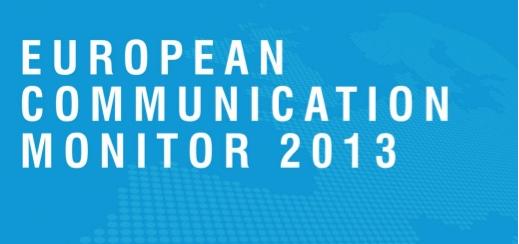
European Communication Monitor published survey conducted during 2013 from the field of communication management and public relations, which included 2710 professionals who deal with these affairs from 43 European countries, even from Bosnia and Herzegovina.
More than 40 percent of the interviewed work on communication management, and their average age is 40. Even though the questionnaire with 39 questions was sent to more than 30.000 professionals who deal with public relations, the most of responses were received from Germany, France, the Netherlands, Norway, Sweden and Great Britain.
Studies have showed that the most communication experts think that the social media influence the perception of the organization, but the employees, bloggers and managers are those who through the use of social networks keep the reputation of the organization. Also, 57 percent of respondents believe that social media is changing the employees’ perception about the organization.
Social networks, online video, mobile applications, microblogs and photo sharing have been rated as the top five channels in communication. However, there are significant differences in their use. So, the web blogs are mostly respected in Romania, Spain, Great Britain, Finland and Germany. Photo sharing as a communication tool is mostly used in Eastern and South-eastern Europe.
European Communication Monitor clearly defines the importance of communication skills of the Chief Executive Officer to deliver key messages of the organization. Every second organization in Europe has not established any monitoring routines to evaluate the reputation of its highest representative. This lack of analysis explains why only 78 percent of organizations try to position their directors within the public sphere, i.e. by defining an image profile and key topics. An even lower number supports this positioning by defining specific communication strategies (57 percent) or communication instruments (59 percent) for the managers.
Important factors for the comprehensive success of an organization are: communication skills of manager in dealing with the media and large audiences (92.5 percent); communication skills of manager in cooperation with small groups and interpersonal relationships (92.9 percent); personal reputation of the manager (89.7 percent) and reference of manager in strategic communication.
There is a significant difference between the communication practices of manager in various European countries. Positioning of the manager will often be found in the United Kingdom, Austria, Germany, Czech Republic and Denmark, while quite rarely in Belgium, Portugal, Italy, Serbia and Croatia.
Also, international communication is important and it will be developed in future, but the organizational structures and strategies will often be missing. The survey showed that 72.5 percent of experts claim that the communication at the international level will become even more important in the next three years, while only 47.3 percent of respondents consider that their organization has solid structures and strategies for international communication.
More on this research can be found here.
